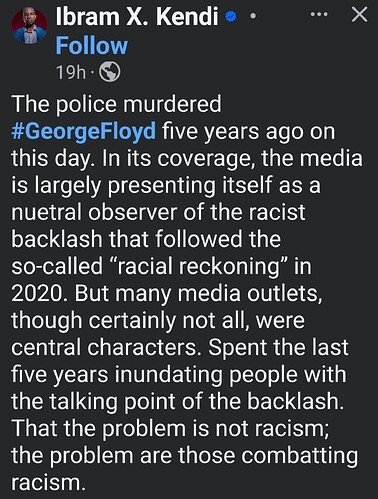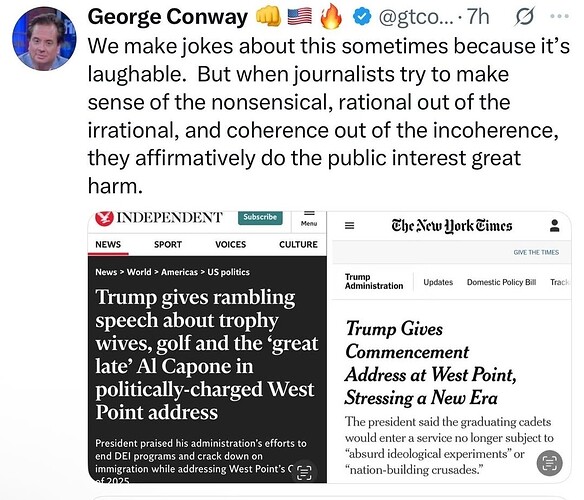There are a couple of things Sam’s carries, an industrial detergent my wife likes for her shop, mostly. But mostly the selection is very underwhelming. We go to Costco for pretty much everything so kong as the large quantities are practical for us. Their middle finger to Il Douche makes that doubly so.
[Kelsey] Grammer says he is conservative in his politics and broadly supportive of the Trump administration. “It’s great to have somebody who actually means what they say,” he says. He asks me afterwards to “be kind about the political thing… Some people just don’t like it.”
There are no Sam’s clubs in Oregon, Washington, or Alaska. They don’t even bother here.
This is shocking to me. Costco’s rotisserie chicken is the best I’ve found everywhere. They had custom roasters designed, and as chicken sizes grew, found that they couldn’t source the right size chicken for their roasters. So they bought their own chicken farms to make sure they had a supply of the right size chicken.
The next part…
But he thinks he was always a conservative. “When I was a little boy I just thought, you know, there’s a right and a wrong,” he says. “This grey area thing doesn’t have a lot of value… I get you can have feelings about certain things, and I want to respect everybody’s feelings. But, you know, you learn in AA that feelings are not facts. And that’s where I think we get confused a lot these days.”
The world is gray, Kelsey. It just is. That’s a fact, and it doesn’t care that the 6 year old boy inside you doesn’t like the way that makes him feel. These people are so full of shit. Trump often (but not always) means what he says, but what he says is objectively awful and wrong. And I really don’t give a shit what he learned in AA since he admits in that article that he still drinks. Feelings are not facts is a phrase often used in AA, but I don’t think he learned the right lesson from it.
Again, I’d have much less problem with people thinking there’s a right and a wrong if they didn’t somehow decide the concentration-camps-for-kids guy is in the right. The problem with Trump supporters isn’t simply that they don’t see shades of gray, it’s that they have made cruelty into their morality.
Well, how else are people gonna learn to keep in line with their “god” if you’re not cruel to them! /s
But seriously, when you talk about right and wrong…I’m not the one who can see an unarmed man get gunned down, or a terrified woman jumped by a masked gang, or a hospital full of children get blown up, and has to ask who they were before I know if it’s cool or not. I don’t think they do believe in black and white morality, just black and white people (the other meaning very much intended too).
If anything, the past decade has proven to me that the world really is more black and white than I’d been taught growing up. That’s not to say it isn’t gray in many ways, but on the other hand, there really are truly evil people who genuinely don’t see themselves as the hero of their own story- real life shallow cartoon villains, real actual monsters without a single redeeming human quality whatsoever. Huge chunks of the population immune to reason, discussion or deprogramming, complete write-offs whose cruelty and hatred will last until their dying day no matter what. What baffles me isn’t that someone might see the world mainly in black and white, but that they could be so completely oblivious to which side is transparently, even proudly evil.
This. I happen to think there is right and wrong; good and evil. And anyone who harms other people is wrong; anyone who thinks they are superior to others is evil.
There are shades of grey, to an extent. Stealing is wrong, except when it’s stealing from a big business, except when it’s actually a small franchisee who will suffer, except when… …
But the existence of shades of grey doesn’t mean there is no black or no white.
That’s the same mistake that the current round of fascists and their enablers have made with concepts like “postmodernism”. The acknowledgement that some things, many things even, are complex, does not mean that simple things don’t exist.
Some things are less bad than other things. Some things are just bad. If you see stealing bread as as bad as murder, then you’re tending towards Rorschach. That’s what black-and-white thinking without any grey looks like.
This example also makes me think that a lot of the gray happens when other people are already being awful. The reason you’re making an exception for a big business is because you know they’re ruining people’s lives. The trolley problem isn’t as hard when people haven’t been tied to the track. The whole “are you saying it would be wrong to say a slur even if it saved a baby’s life” nonsense was positing some murderer who was going to kill a baby unless you placated him…hell, most of the “but couldn’t you do more good with this money” only happens because we know the people who currently have the money won’t. Real ethical compromises happen, but they happen a lot less often when you’re not also trying to work around the harm done by unethical people.
But unethical people exist, and so therefore must compromises for an ethical person. It doesn’t have to rise to the level of a trolley problem for paradoxes and no-win scenarios to exist. Life is messy, and it is inevitable that there will be situations where there is no good solution, only a selection from the least worst, even if everyone involved is doing the right thing. It’s in how you decide which is the least worst that the trolley problem comes in. Saying that something is a Trolley Problem isn’t saying that it isn’t a real conundrum, it’s saying that sometimes it’s hard and there can be actual legitimate good faith debate about which of the bad options are less bad than any of the others, or if there is even a less bad option. It’s not saying there isn’t a line, it’s saying that sometimes the line is in a different place depending where you’re looking from. (And sometimes the Trolley Problem is used by philosophers to handwave away how horrible their philosophy is by setting up a strawman trolley problem and then moving the goalposts, Peter Singer I’m looking at you.)
But all that said, some things are just bad. Bombing children is bad. Some things are just good. “I’ll be fine, go help them first” is good. There being a whole lot of stuff we deal with every single day in between those two doesn’t change that.
“The law, in its majestic equality, forbids rich and poor alike to sleep under bridges, to beg in the streets, and to steal bread.” – Anatole France (my favorite quote learned in law school)
The media gave outsized coverage to the few violent demonstrations in the summer of 2020. Which made it easy for racist propagandists to misrepresent antiracist demonstrations in general as violent.
Packs of media outlets have not needed evidence—just allegations from a few aggrieved people—to smear Black leaders as corrupt and racial justice organizations as dysfunctional. The tidal wave of covering allegations usually became a splash of coverage, if anything, when Black leaders were cleared.
Media outlets rarely covered the impact of these Black leaders and racial justice organizations, all the people they mobilized and organized, all the studies and reports and literature they put out, all the campaigns of changes they waged, all the minds and policies they transformed, all the power they built. None of this was normally considered “news,” making it seem as if these organizations and leaders weren’t doing anything.
To consume the media over the last five years is to often be led to believe that Black leaders and racial justice organizations have been commonly corrupt, violent, anti-White, irresponsible, and dysfunctional, all longstanding anti-Black racist ideas. And the members of the media who pushed back hard on these racist narratives or refused to circulate them were too often de-platformed or removed from their positions or left out of frustration. (Shout out to those still there, toughing it out).
The media has produced rosy profiles of—or hardly profiled—those corrupt, anti-Black, and grifting leaders and organizations that executed the backlash or colluded in it. Where are all the stories of how those leaders and organizations strangled the antiracist movement and attempted to stop it in the manner Chauvin strangled Floyd and succeeded in stopping his movement?
Instead, the media covered the gasps of Black organizations and leaders being strangled, while rarely contextualizing the larger structural and institutional forces strangling them. Making it seem as if they were struggling due to their own internal condition. Just like Minneapolis police first claimed Floyd died of his own medial condition.
All the while, racist propagandists have focused on generating resentment and envy of Black people and organizations by sharing how much they were making or raising. Racist propagandists never put these figures in context: that Black people and organizations have made or raised far less than many White leaders and organizations. Media outlets have been more than willing to circulate these figures without context and thereby spread this resentment and envy among people of all races and ideologies.
Media outlets have used the terms and acronyms manufactured by the very propagandists executing the backlash, terms and acronyms like “CRT” and “wokeism” and “DEI.” Media outlets have cast those misrepresenting and attacking “BLM” and “CRT” and “wokeism” and “DEI” and antiracism as “conservative,” covering up what they have been: racist. Which makes sense. Denial begets denial. For media outlets to describe this backlash as racist is to end up describing their role in the backlash as racist.
Even if it is untrue does contain this in the comments

I think it might be useful.
I work in a field where i have to balance not-perfect options all the time, so i actually have no issues with seeing the gray. Good is healthy, bad is sick, but sick is inevitable, so we try to minimize sick. Treatments have side effects, inevitably. So we try to maximize benefits while minimizing risks. Parents never want risks, but they want their kids better, and so they fall for woomeisters who convince them of perfect answers with no downside. And the kids suffer. I had not intended an analogy here, but i think there is one anyway.
MAGAts are unwittingly trying protect their inner child?
Oh, thanks. One more reason not to like Kelsey Grammer.


